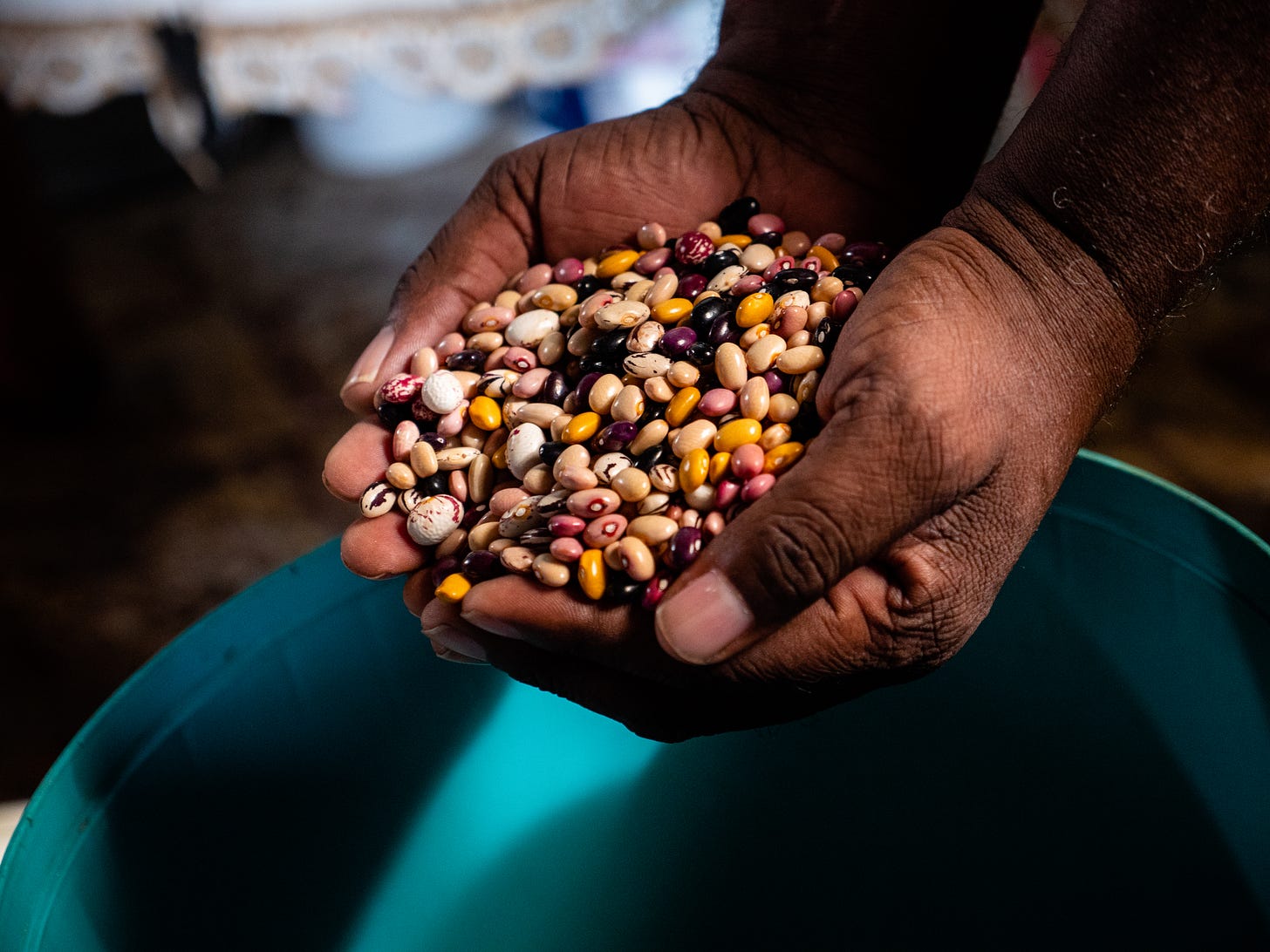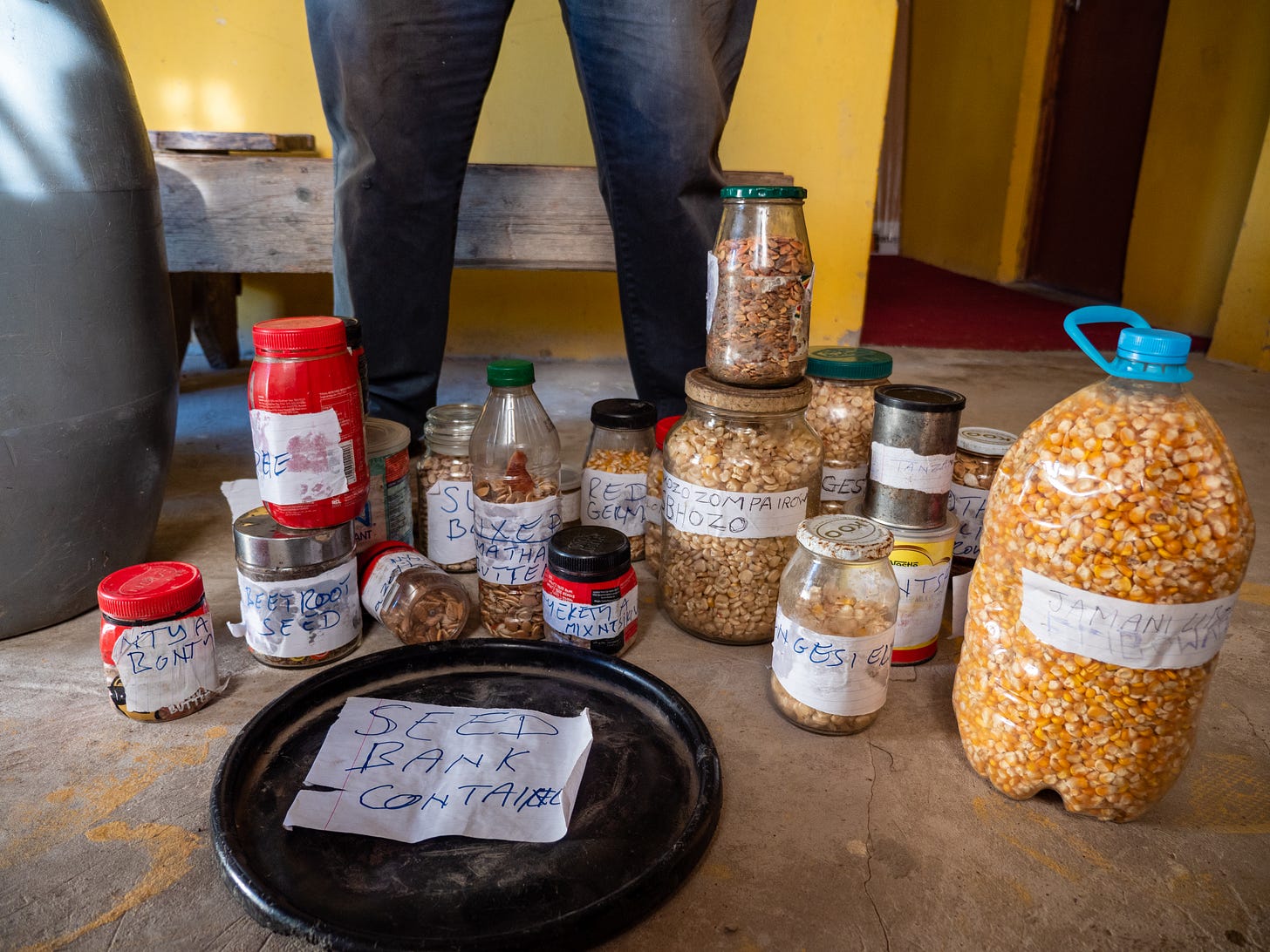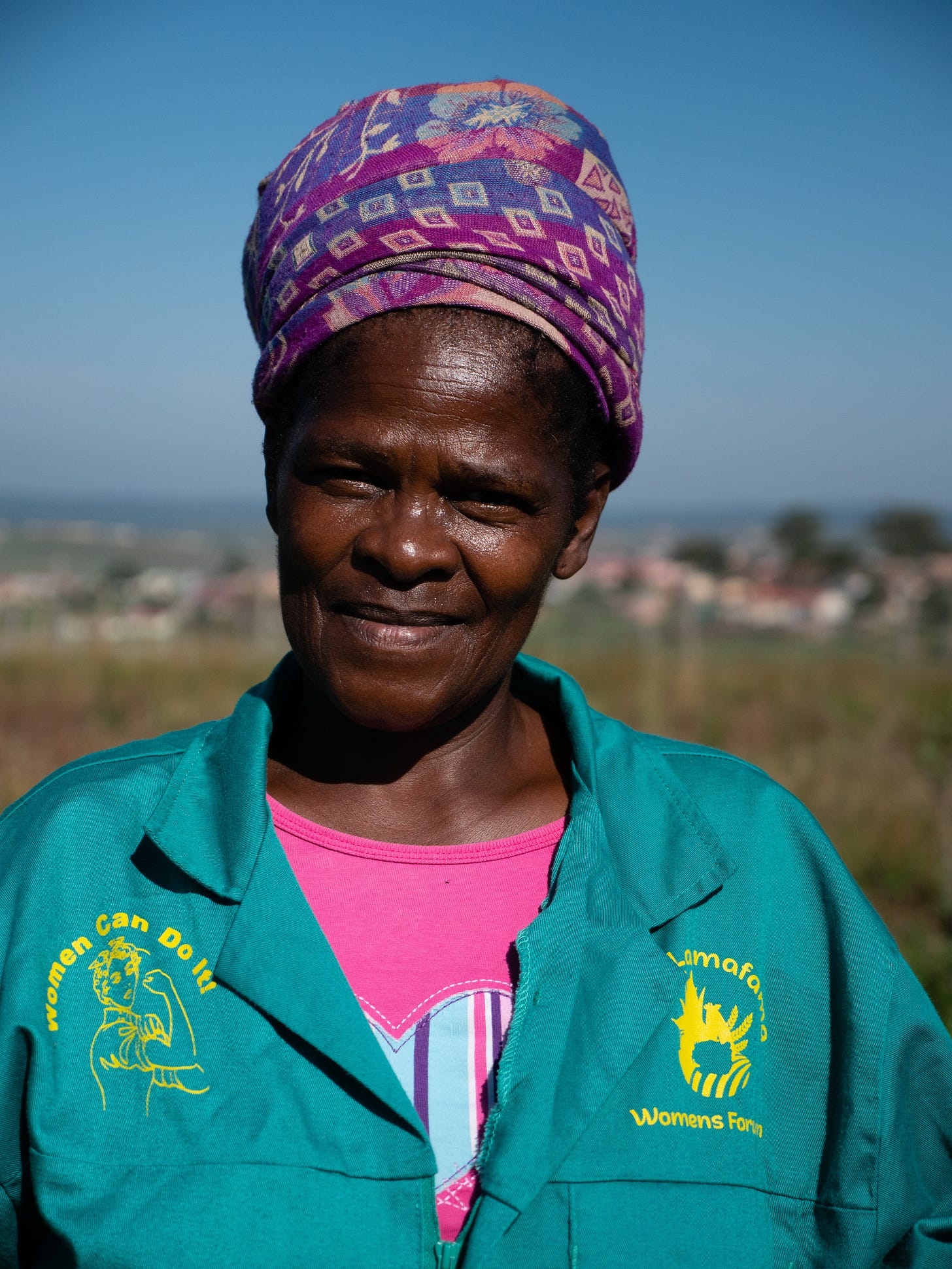Words and Images by Reto Steffen | Instagram | Website
Over the past few years, big agribusiness — with the help of the government — has pushed farmers in South Africa to buy genetically modified (GMO) seeds supposedly more resistant to pests and diseases. Farmers haven’t had much choice in the matter; traditional seeds face extinction and importing seeds from other countries was, and sometimes still is, illegal. The GMO seeds lock farmers into a system that forces their dependence on big agribusiness products throughout the crop lifecycle. For instance, GMO seeds can only be fertilized with a particular fertilizer, and they can't be saved and reseeded the following year, either because they are designed to become sterile after one planting or because the farmers have signed contracts that prohibit saving seeds.
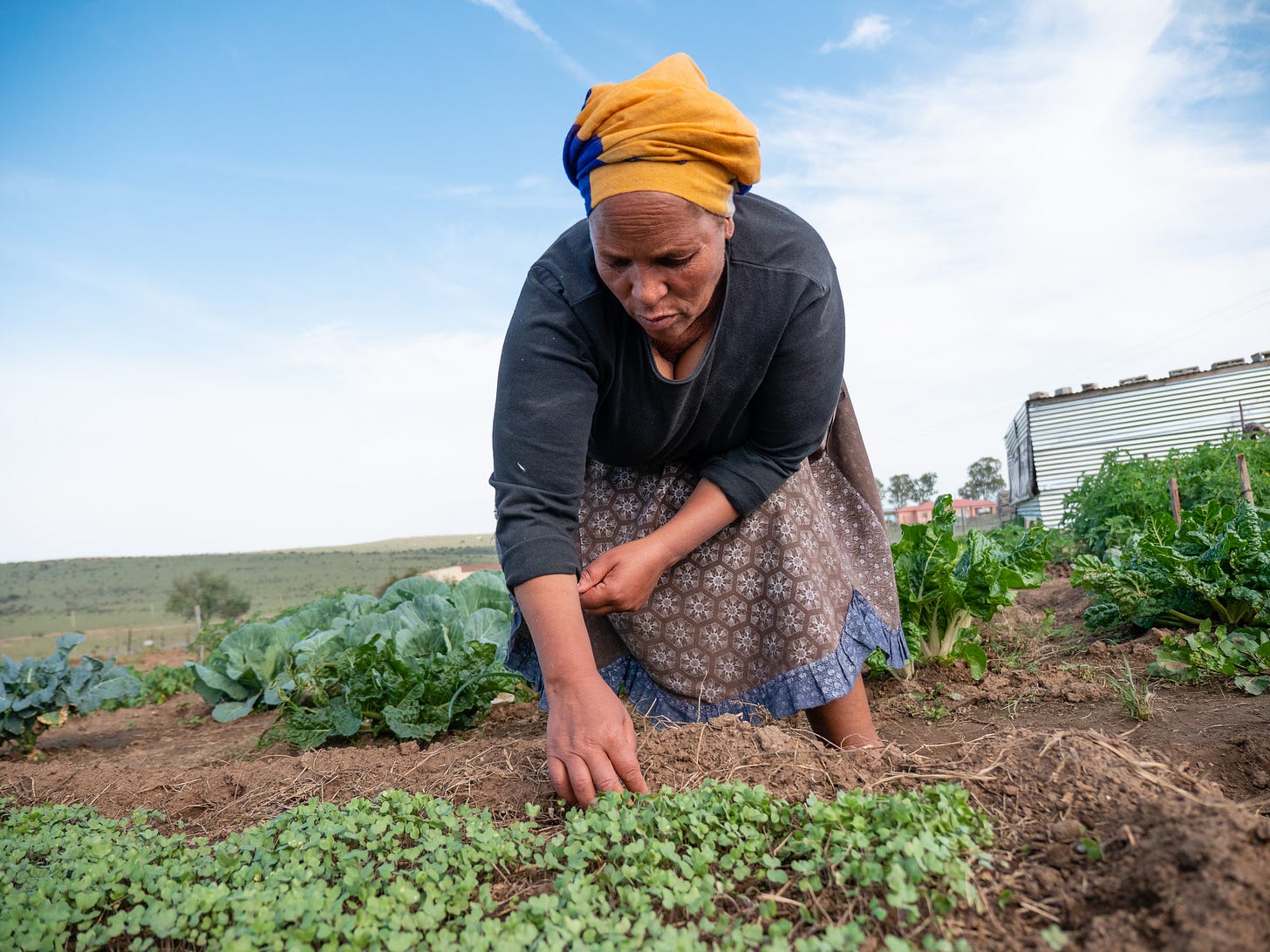
Regionally and naturally adapted non-GMO seeds are more resistant to climate change and need less water. With the help of agroecology (the combination of ecological concepts and principles in farming), the seeds need even less water and no industrial pesticides to grow, which is a win-win for farmers, consumers and the planet. Traditionally, farmers would save some of their harvest to use as seeds for the following year’s crop, observing which seeds grow best and sowing more of them. They’ve been stripped of that decision-making power, however, and forced to become part of a very prescriptive farming process, simply buying seeds, sowing, harvesting, buying seeds, sowing, harvesting, and so on.

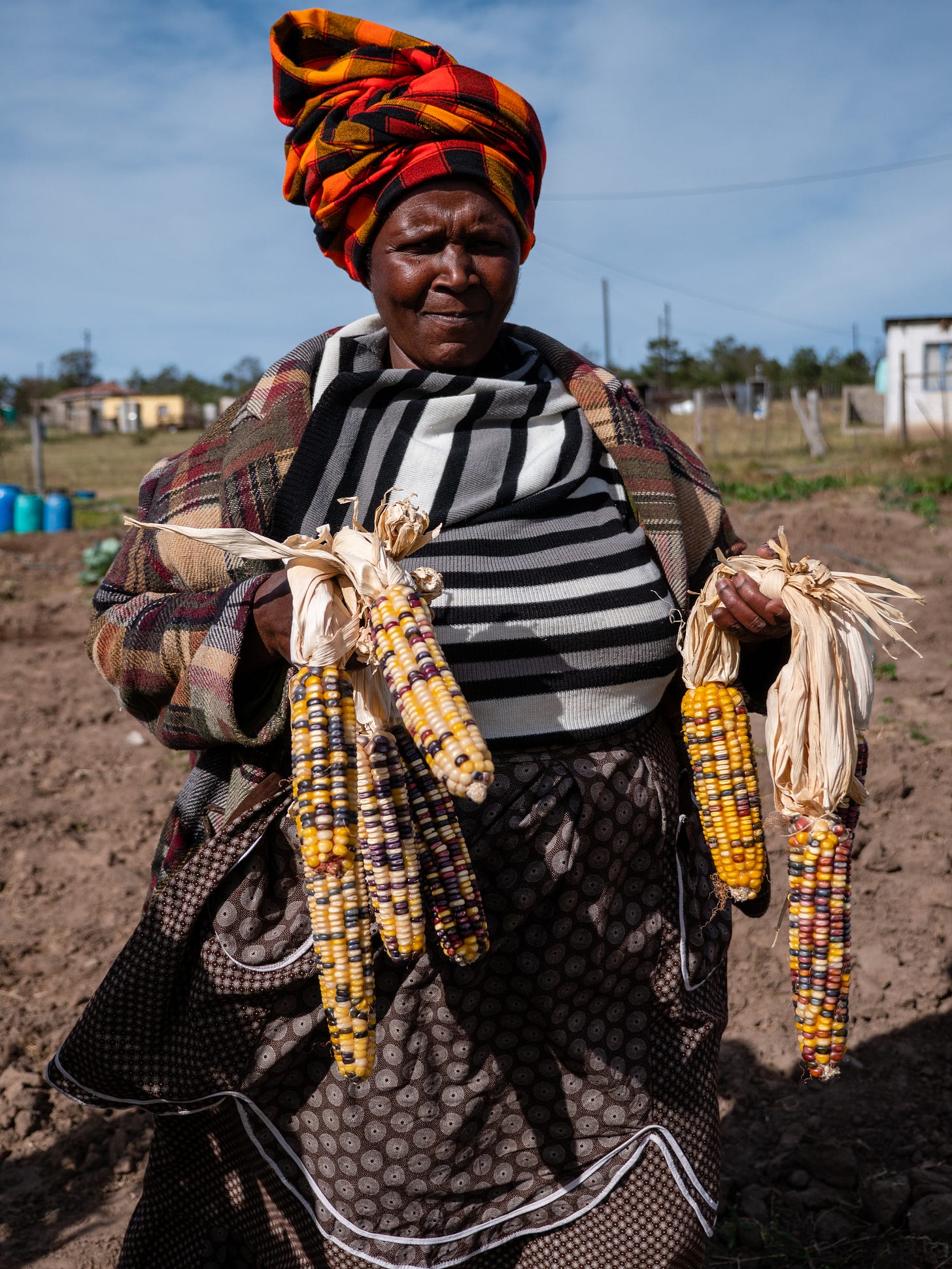
To get out of this vicious cycle, an organization called the Rural Women's Assembly (RWA) — a group active all over Southern Africa — lobbied politicians to stop the push for use of GMO seeds and allow some seed exchange between countries in the region.
Thobeka Mapukata, an RWA member, said, “The traditional seeds are very important. They have benefits, they have no chemicals involved, it’s the type of seeds our forefathers and our grandmothers were using, and which resulted in them having less of the sicknesses that today we are suffering from. And now we are going back to our roots and it makes us feel that we are on the right track and that we are improving our lives by using the traditional seeds.”

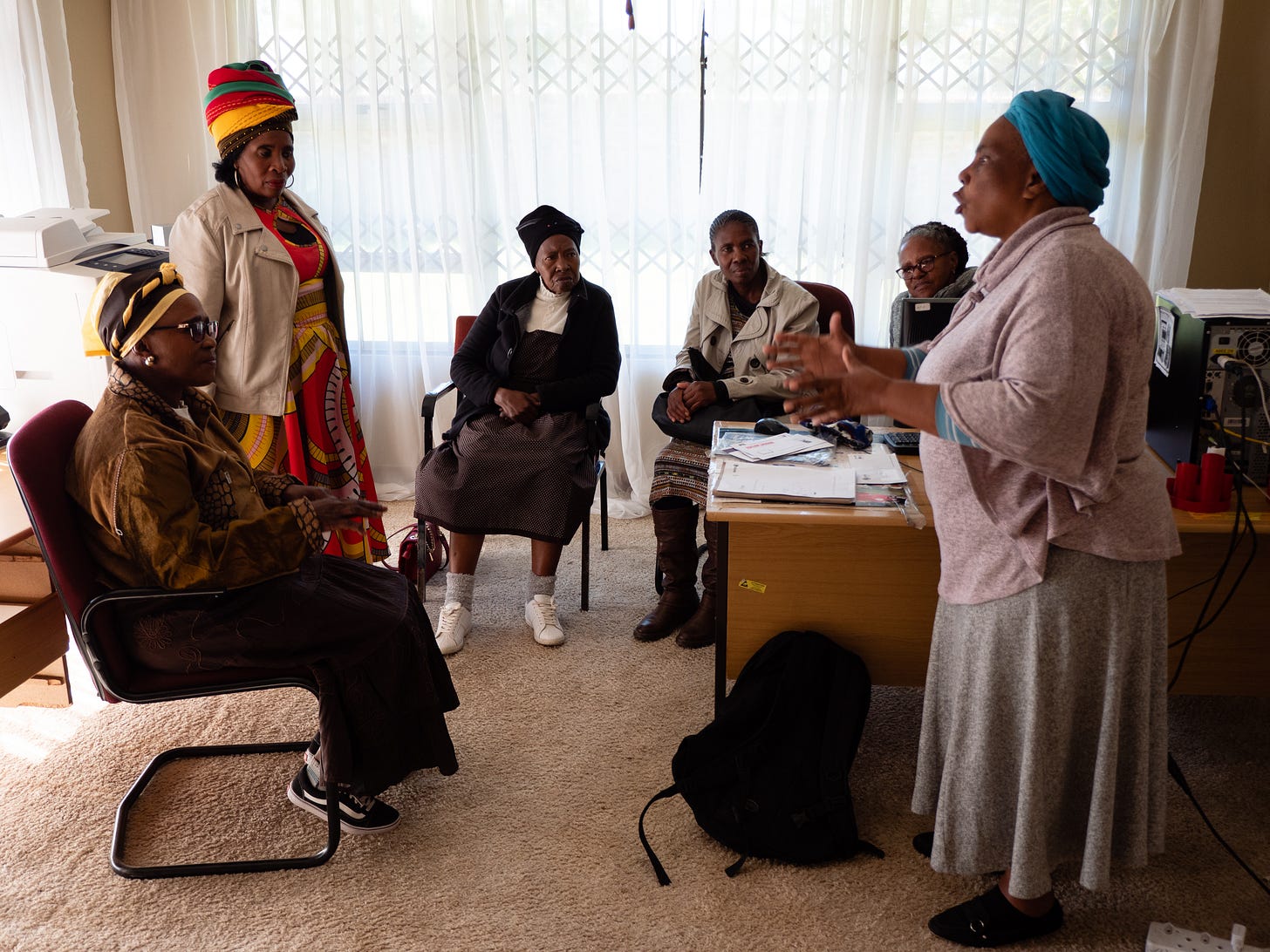
Additionally, the RWA links rural women together in a network to better advocate for their interests on a political level — land ownership is still difficult for women, and the network helps them by offering agroecological training and securing land for cooperatives and their communal gardens. In South Africa, a significant amount of agricultural knowledge was lost when non-white people were forcibly displaced under apartheid. RWA’s agroecology training and support for cooperatives trying to secure land for gardens are re-building that knowledge base and making food production more sustainable in communities lacking infrastructure and/or government assistance. Food grown locally in community gardens doesn't need to be transported, transformed or preserved, which means it's typically fresher, more nutritious and less harmful for the planet.

Giving farmers their "seed independence" back is essential in the effort to build better, more sustainable food production systems and ensures farming is a viable alternative for young people that still see migrating to a city as the only solution for finding work.







